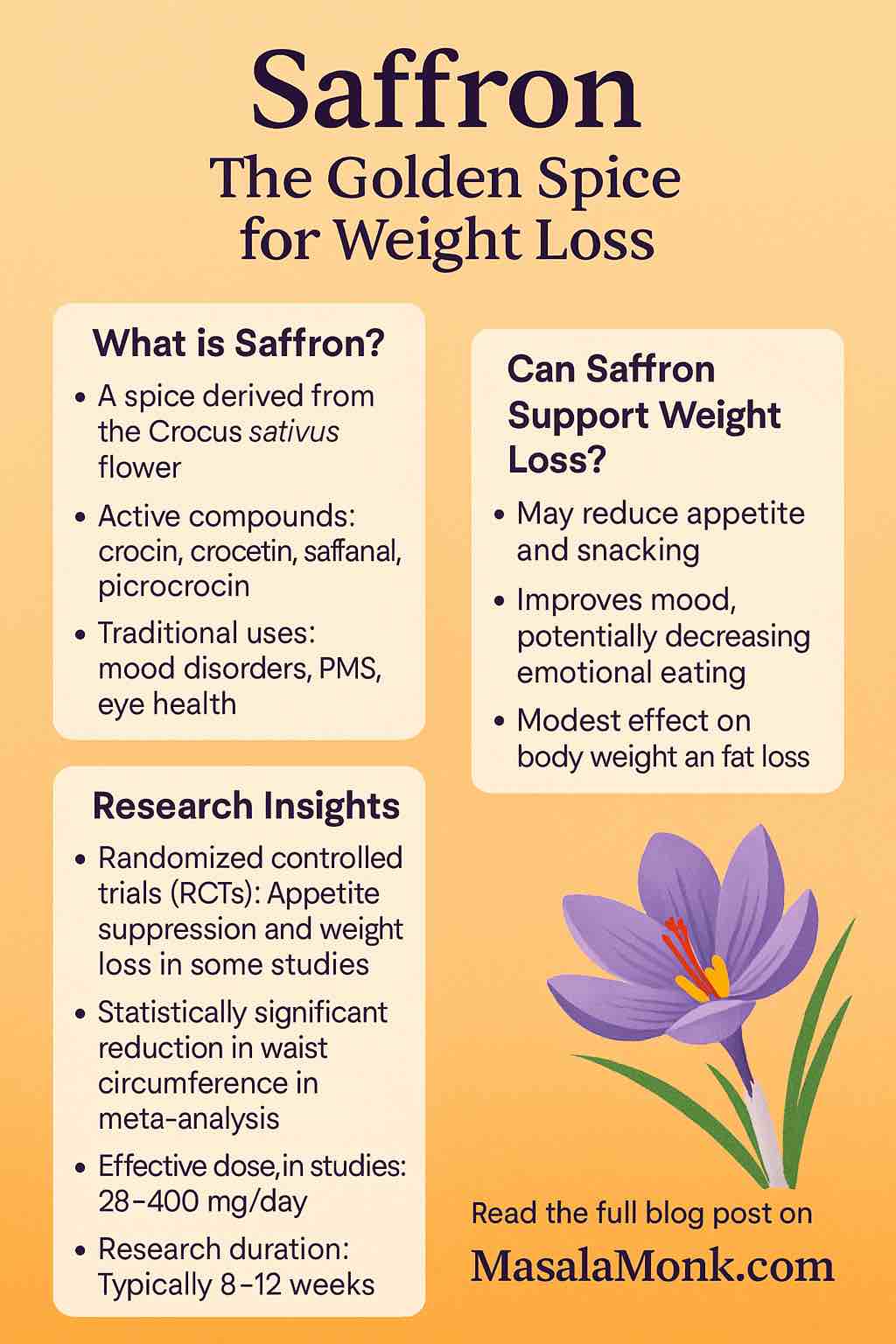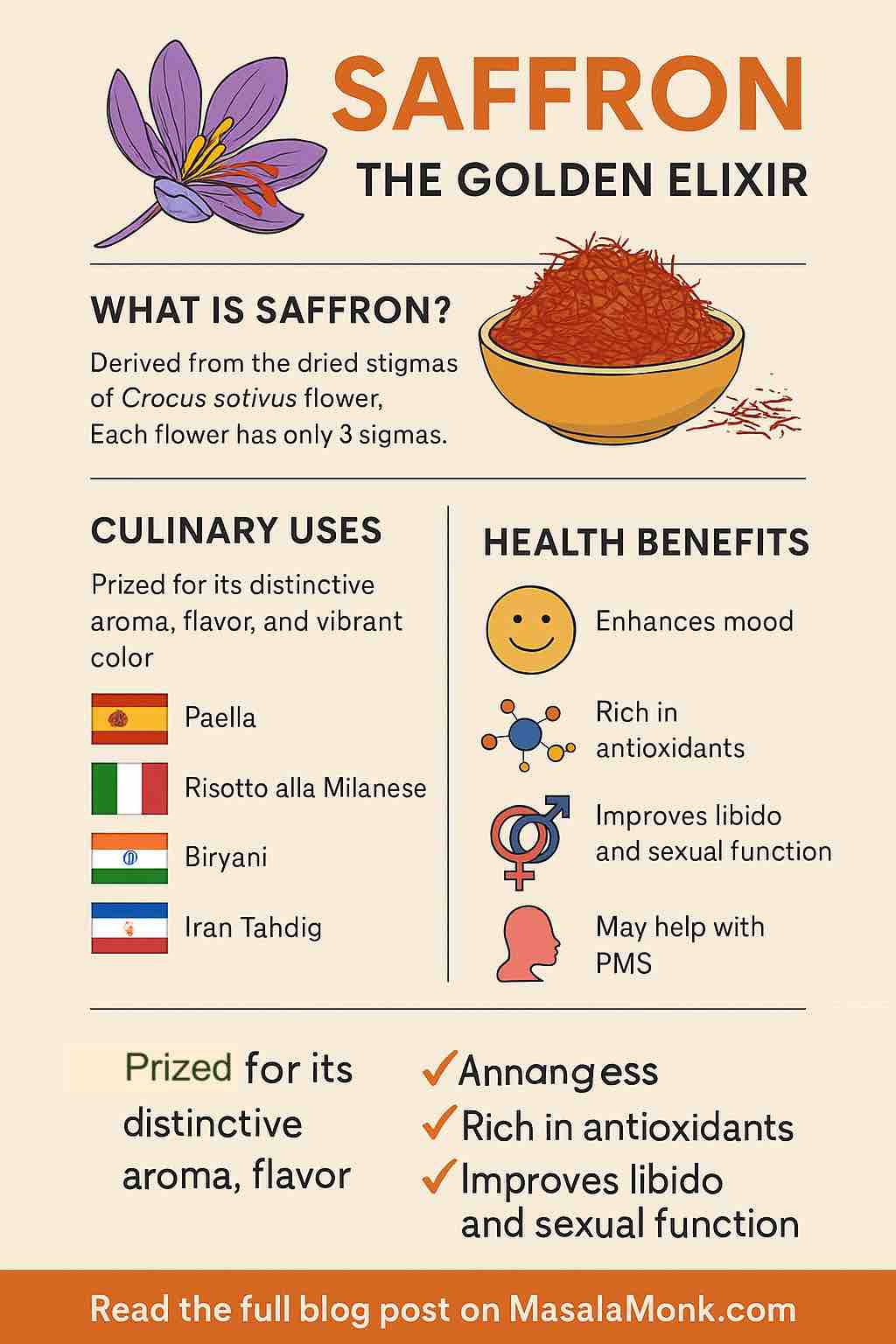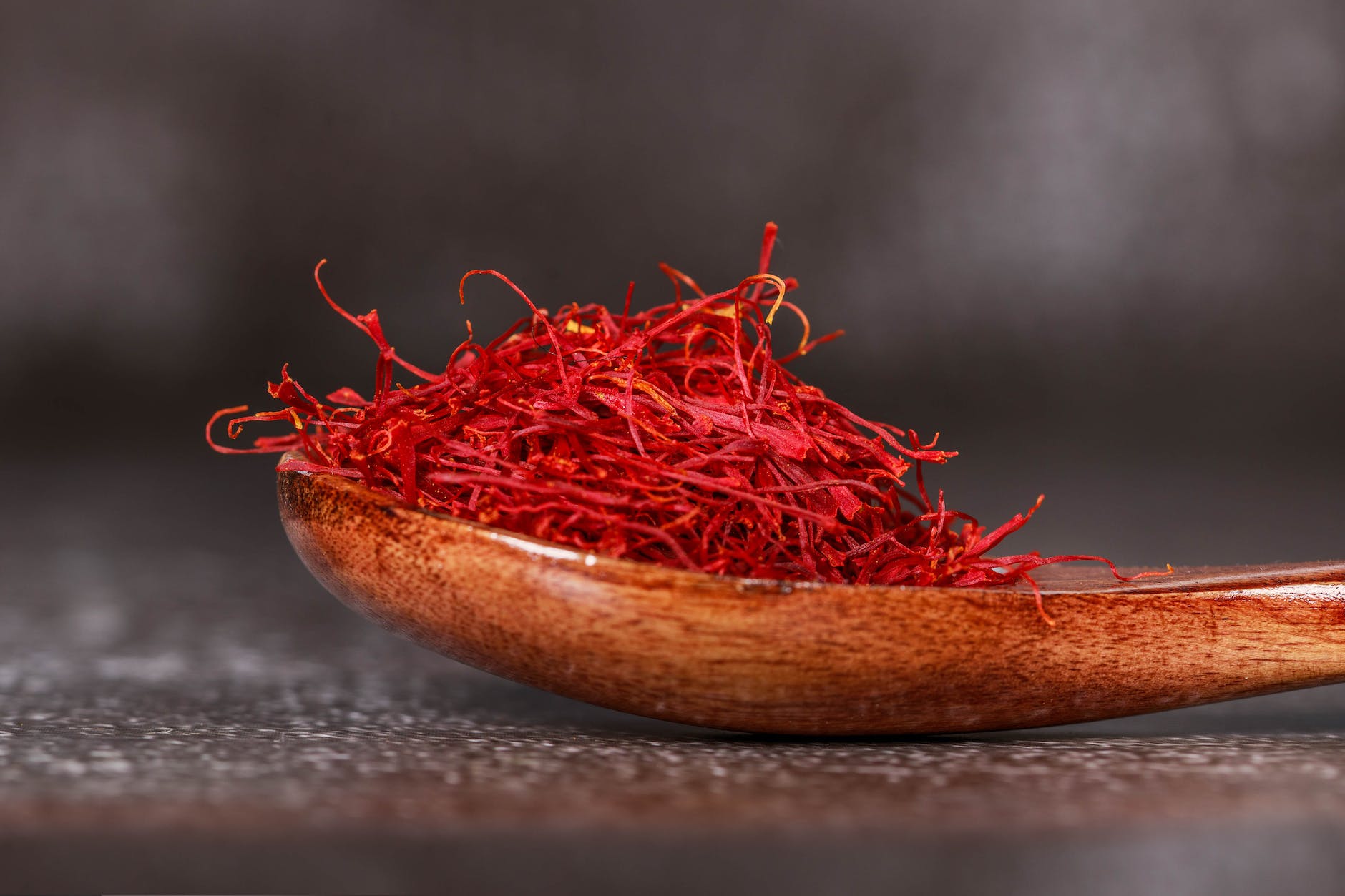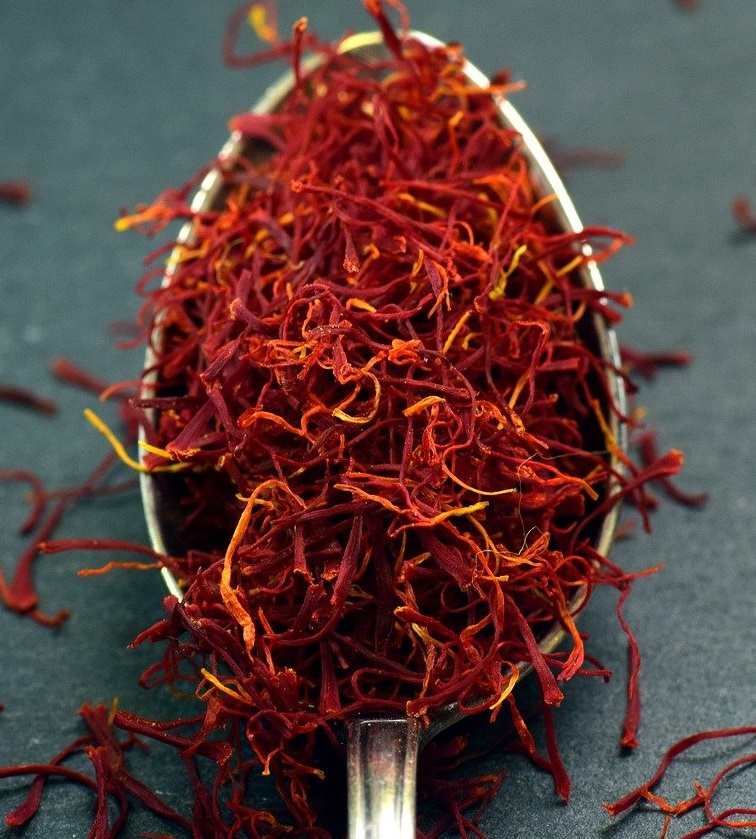
Saffron—often called the “golden spice”—has long been treasured for its unique flavor, vibrant color, and sky-high price tag. But beyond the allure in your kitchen, this delicate stigma of the Crocus sativus flower has been a cornerstone of traditional medicine for centuries. Today, science is catching up, uncovering remarkable properties that go beyond mood improvement and into the realm of weight loss and appetite control. Can saffron really help curb those late-night cravings and support your healthy weight journey? Let’s dive into the latest research, practical advice, and expert insights.
Why Saffron for Weight Loss?
Saffron’s story as a health aid isn’t new. Traditional Persian, Indian, and Mediterranean cultures have used it for everything from mood enhancement to digestive health. But its recent emergence as a natural appetite suppressant has sparked a new wave of interest—especially among those looking for alternatives to stimulant-based weight loss pills.
What’s the secret?
Saffron contains bioactive compounds like crocin, crocetin, safranal, and picrocrocin, which are believed to interact with neurotransmitters involved in satiety (fullness), mood regulation, and even fat metabolism.
What Does the Research Actually Say?
1. Appetite Suppression and Less Snacking
One of the earliest and most widely cited studies found that women who took a patented saffron extract called Satiereal (176.5 mg/day) for 8 weeks snacked significantly less and lost more weight compared to those on placebo. Participants reported less “compulsive eating”—often driven by emotional or stress triggers.
A 2024 trial in overweight adolescents (using 60 mg/day for 12 weeks) also showed reduced appetite, lower BMI, and slimmer waistlines—even outperforming some standard medications in certain areas.
2. Mood and Emotional Eating
Saffron has been studied for its antidepressant effects, with several trials showing it can enhance serotonin activity in the brain. Why does this matter for weight loss? Because many people overeat when they’re stressed or sad. Improving mood may help reduce the urge to eat for emotional comfort—making healthy choices easier and more natural.
3. Metabolic Benefits
Recent meta-analyses in people with metabolic syndrome or prediabetes show saffron can:
- Lower fasting blood glucose
- Improve HDL (“good”) cholesterol
- Reduce triglycerides and total cholesterol
While the effect on total body weight is modest, these metabolic benefits matter for anyone trying to lose weight or improve health markers.
4. How Strong Is the Evidence?
- Multiple RCTs (randomized controlled trials) back up saffron’s effect on appetite, emotional eating, and waist circumference.
- Meta-analyses (the gold standard of evidence) show statistically significant—though modest—weight and waist reductions.
How Does Saffron Work?
Scientists believe saffron’s appetite-controlling powers come from:
- Serotonin modulation: Saffron appears to help maintain serotonin in the brain, supporting satiety and better mood.
- Gut-brain signaling: Compounds in saffron may positively affect hormones like ghrelin (the “hunger hormone”) and peptide YY (a fullness hormone).
- Synergistic plant compounds: Whole saffron extract tends to outperform isolated molecules, suggesting a “teamwork” effect.
How to Use Saffron for Weight Loss: Practical Guide
1. Supplements vs. Culinary Saffron
- Supplements: Most clinical trials use standardized saffron extracts (like Satiereal or Supresa), typically in capsules.
- Culinary saffron: While delicious and healthy, you’d need unrealistic amounts to match the doses used in studies.
2. Dosage
- Most studied: 28–400 mg/day of extract, most commonly 60 mg/day.
- Duration: At least 8–12 weeks for best effect.
- Tip: Always choose extracts standardized for crocin content, ideally from a reputable brand with 3rd-party testing.
3. When to Take Saffron?
- Split doses: Morning and evening, or before meals, may help control appetite throughout the day.
- With food: Can be taken with or without food, but consistency is key.
4. Who Should Avoid Saffron?
- Pregnant and breastfeeding women (unless using only as a spice in food)
- Those on antidepressants (due to possible serotonin effects)
- Anyone with known saffron allergy
5. Is Saffron Safe?
- At studied doses (28–400 mg/day): generally very safe, with only mild side effects (nausea, dizziness, dry mouth in rare cases).
- Avoid high doses (>1.5 g/day), which can be toxic.
Choosing the Right Supplement
When buying a saffron supplement:
- Look for brands using clinically studied extracts (e.g., Satiereal, Supresa)
- Check for standardization to crocin and/or safranal
- Review 3rd-party lab testing for purity and authenticity (to avoid adulteration with turmeric or marigold)
- Beware of “bargain” saffron—it’s often not genuine!
Can You Boost Results? Pair Saffron with Lifestyle Habits
Saffron isn’t a miracle spice, but it can support your efforts when used alongside:
- Healthy, balanced diet (think lots of fiber, veggies, lean protein)
- Consistent exercise (even daily walking helps)
- Mindful eating practices (notice hunger and fullness cues)
- Stress management (yoga, meditation, or even a hobby you enjoy)
Real-World Experience
Many people describe feeling less “snacky,” improved mood, and even easier weight management after a few weeks of saffron supplementation. Of course, everyone’s results vary—but when combined with a healthy lifestyle, saffron is a promising, natural tool in your wellness arsenal.
Latest Science: What’s New?
- Innovative delivery: Patented extracts like Supresa® may offer stronger appetite control, and nanoformulations are being studied for better absorption.
- Teen trials: Even in adolescents, saffron appears safe and effective for appetite and metabolic support.
- Long-term questions: Most research is under 12 weeks—more studies are needed for extended use and in diverse populations.
Conclusion
Saffron’s golden threads aren’t just for risotto or paella—they could play a golden role in helping you manage weight and control appetite, naturally and safely. Backed by centuries of traditional wisdom and modern clinical science, saffron is emerging as a standout spice for holistic health.
If you’re struggling with emotional eating, snacking, or motivation, consider adding a quality saffron extract to your wellness routine (with your healthcare provider’s okay). It’s not a quick fix, but it’s a small, flavorful step toward sustainable results.
Ready to try saffron?
Remember: Look for quality, consistency, and integrate it with healthy habits. Your journey to a lighter, happier you could be a little more golden!
What are your thoughts? Have you tried saffron for appetite or weight? Share your experiences or questions in the comments below!
FAQs
1. How much saffron should I take for weight loss?
Most studies use 28–400 mg per day of a standardized saffron extract, with 60 mg/day being the most common effective dose. Always follow the instructions on your supplement, and consult your healthcare provider before starting.
2. How long does it take to see results with saffron?
Clinical trials show benefits (reduced appetite, less snacking, modest weight loss) typically appear after 6–12 weeks of consistent use.
3. Can I just add saffron to my food instead of taking supplements?
While culinary saffron is healthy, the effective amounts used in studies are much higher than what you’d normally cook with. For appetite control, a standardized extract supplement is recommended.
4. Are there any side effects of saffron?
Saffron is generally very safe at recommended doses. Rarely, some people experience nausea, dizziness, or dry mouth. High doses (above 1.5 grams daily) can be toxic.
5. Is saffron safe for everyone?
Saffron supplements are not recommended for pregnant or breastfeeding women, people with certain allergies, or those on antidepressants without doctor supervision. Always check with your healthcare provider.
6. Does saffron help with emotional eating or cravings?
Yes, saffron has been shown to improve mood and reduce the urge to snack, especially in response to stress or emotional triggers, due to its effects on serotonin.
7. Will saffron supplements interact with my medication?
Saffron can increase serotonin activity, so use caution if you’re on SSRIs or other antidepressants. Discuss with your doctor if you’re on medication before starting saffron.
8. What’s the best form of saffron supplement to buy?
Choose a supplement standardized to crocin or safranal, preferably with third-party lab testing for purity. Reputable brands will often use patented extracts like Satiereal or Supresa.
9. Can children or teens use saffron for weight control?
Recent studies suggest low doses may be safe and effective for adolescents, but only under medical supervision. Do not give supplements to children without consulting a pediatrician.
10. Can saffron replace diet and exercise for weight loss?
No. Saffron can help reduce appetite and support weight loss, but it works best alongside a balanced diet and regular exercise. Think of it as a helpful tool, not a replacement.
















